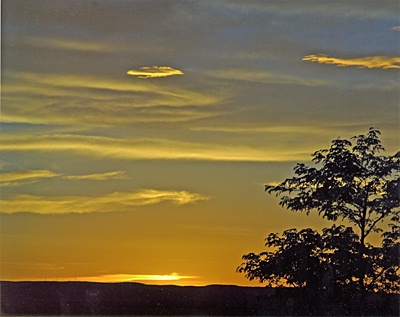All Nonfiction
- Bullying
- Books
- Academic
- Author Interviews
- Celebrity interviews
- College Articles
- College Essays
- Educator of the Year
- Heroes
- Interviews
- Memoir
- Personal Experience
- Sports
- Travel & Culture
All Opinions
- Bullying
- Current Events / Politics
- Discrimination
- Drugs / Alcohol / Smoking
- Entertainment / Celebrities
- Environment
- Love / Relationships
- Movies / Music / TV
- Pop Culture / Trends
- School / College
- Social Issues / Civics
- Spirituality / Religion
- Sports / Hobbies
All Hot Topics
- Bullying
- Community Service
- Environment
- Health
- Letters to the Editor
- Pride & Prejudice
- What Matters
- Back
Summer Guide
- Program Links
- Program Reviews
- Back
College Guide
- College Links
- College Reviews
- College Essays
- College Articles
- Back
Human vs. Nature
Naturalism refers to an extreme type of realism which focuses on the impact of the environment on human conditions. And naturalistic writers usually employ the idea that natural laws or forces operate the world in their stories. Jack London’s novel “To Build a Fire”, a great example of naturalism, centers on the theme of Man Versus Nature. Behind this tragic tale, London tries to convey a message is based on naturalistic beliefs to the readers. In “To Build a Fire”, London informs the readers that human are feeble and weak in the face of the indifference of nature by using a specific choice of setting which creates tone, and tone which enhances the setting, along with the use of conflict which lays underneath the establishment of the setting and tone.
To begin with, London emphasizes the naturalistic theme in several ways, but the most obvious way is his selection of the setting in which the story takes place. The short story opens with a thorough description of the Yukon where there is “no sun or promise of sun, although there was not a cloud in the sky” and “indescribable darkness over the face of things” (64). This portrayal of the setting immediately establishes the pessimistic and gloomy tone of the story and lays the foundation for the author’s message as the plot advances. London constructs the setting as in the remote wilderness of Yukon during harsh winter months where “it is 50 degrees below zero” (65) and “no sun nor hint of the sun” (73), which is the epitome of hostility and cruelty. Additionally, the tone that London uses to illustrate the environment is detached, emotionless and scientific, supporting the ruthless quality of the setting. Through the specific selection of setting, London is able to create and build a mood that is depressing and frightening; and tone helps to establish the setting. This way, London can effectively get his message across for the readers using the intertwined literary choices of setting and tone.
Another way that London uses to highlight the theme is through conflicts. The major conflict in this story is Individual versus Nature. In “To Build a Fire”, the man represents the individual and Yukon represents Nature. In the story, the environment is depicted almost as a character who juxtaposes with The Man in the story. The Man is nameless and the readers don’t get any information about his background or even appearance. In contrast, Yukon and the Yukon trail are introduced instantly and in detail when the story begins and the readers are informed that Yukon “lay(s) a mile wide” and is “hidden under three feet of ice” (64), and that the Yukon trail is “a little-traveled trail led east through the pine forest”(64). Therefore, this contrast suggests that in the author’s mind, nature ranks higher than The Man, connecting to the theme that nature overpowers the man. In addition, London demonstrates the three stages of conflict: establishment, development, and resolution, explaining the process of the defeat of the man by nature. When the man first encounters the environment, “the distant trail, no sun in the sky, the great cold, and the strangeness of it all - had no effect on the man” (65). But as the man proceeds and attempts to conquer the environment, he becomes “somewhat frightened” (69) and finally admits that “it certainly was cold” (70). In the end, after numerous attempts to subdue the environment and endeavors to live, the man was defeated and devastated: “the man was shocked. It was like hearing his own judgment of death” (73). Ultimately, nature vanquishes the man entirely when he realizes “it was a problem of life and death with the circumstances against him” (77) and he falls into “the most comfortable and satisfying sleep he had ever known” (79). This conflict between man and nature serves as a structure for the major theme of the story, and it expresses London’s view that life is presented as deterministic because environment controls human actions rather than free will, and further supports the theme.
With his unique style, Jack London has portrayed a story about a hapless man struggling in the wilderness of Yukon. By employing a special selection of setting as well as careful use of tone in the story, London directs the readers’ attention to the conflict between individual and nature and establishes the overarching theme that human cannot conquer nature.

Similar Articles
JOIN THE DISCUSSION
This article has 0 comments.
